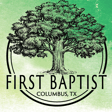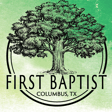
Tell Your Heart to Beat Again (Isaiah 38)
After successfully performing a heart surgery on a woman, the heart doctor was not able to massage her heart into beating again. So, he removed his surgical mask, knelt down beside her and whispered these words, “Mrs. Johnson, this is your surgeon. The operation went perfectly. Your heart has been repaired. Now tell your heart to beat again.”
This true story from Ohio reminds me of another true story from Jerusalem. It surprisingly happened to a young king in Judah when he was 39 years of age. He learned that he had a terminal illness and took it pretty hard.
God had used King Hezekiah in powerful ways by ushering in a spiritual revival in his policies and praying down a national rescue when surrounded by the Assyrian army. But something shifted in the young king’s heart. As he became more prosperous and the affluence of his administration began to rise so did his arrogance. 2 Chronicles 32:22-25 concludes with God saying of the ruler, “…for his heart was proud.”
This disturbing turn of events was used of God to reset the king’s heart. His remorse and his repentance would repair his heart and cause it to once again beat with the rhythm of trust and humility before God. Isaiah 38 gives us the true account of how his faith began to beat again.
1. Crisis in his health, 38:1
2. Sentence regarding his death, 38:1-2
3. Turning toward his faith, 38:2-3
4. Extension to his path, 38:4-6
5. Signs based upon His (God’s) strength, 38:7-8, 22
6. Healing based upon His (God’s) truth, 38:9, 21
7. Anguish if without his breath, 38:10-16
8. Appreciation upon this earth, 38:17-20
---
Growing in Grace Devotions and Inspirations
Hosted by Pastor Victor Morrison
First Baptist Church
1700 Milam Street
Columbus, TX, USA 78934
http://fbccolumbustx.org/

